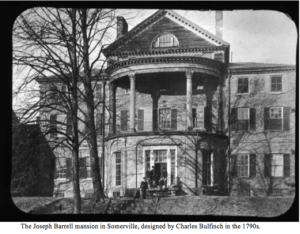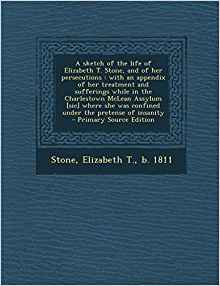
Part of the Original Asylum, Previously Known as the Asylum for the Insane. The Facility Opened in 1818 as a Division of Massachusetts General Hospital
People who were tricked into an asylum by relatives or friends have given heartbreaking accounts of the experience, and Elizabeth T. Stone was no exception. After attending a family gathering on Thanksgiving, she went with her brother to what she thought was a boarding house. She was puzzled by the odd way she was treated upon arrival, the barred windows, and the regimented meals and bedtimes, but it was not until her second day that she learned she was at McLean Asylum and that her brother had had her committed there.
Stone’s despair was enormous, but she had the wit not to show her frantic emotions. She knew her protests and defensive statements would be put down to her “derangement” and that this easy label would not help her with the physicians there. Stone attributed her commitment to the asylum from the religious disagreement she had with her family, but her experience is so much more a lens on the easy commitment laws that prevailed at the time.

A Gilbert Stuart Painting of John McLean, Who Bequeathed a Fortune to the Asylum

A Sketch of the Life of Elizabeth T. Stone and of her persecutions
Stone apparently broke down within a short time and and made up her mind to commit suicide by tearing off a strip of her sheet so she could hang herself. The sheet gave way before she actually died, but the incident brought her more restriction. She continued to deteriorate mentally and lost a degree of self-control, though she was always aware of her surroundings. Stone eventually was released to one of her brothers and wrote a bitter account of her stay at McLean. Her book, A Sketch of the Life of Elizabeth T. Stone, was published in 1842.